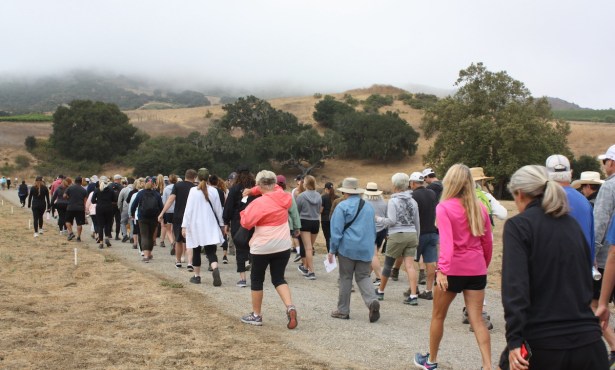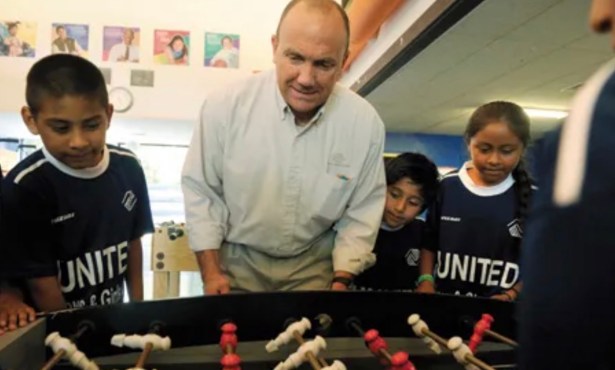Rescue Dogs Save Haitian Lives
Ojai's Search Dog Foundation Deploys Canine Response Teams to Disaster Zone
After spending 16 days in Port-au-Prince after the city was rocked by an earthquake, Ojai-based National Disaster Search Dog Foundation (SDF) teams rescued 10 victims from the rubble. A 72-person, six-team task force from SDF’s Los Angeles chapter, which arrived back in L.A. last Thursday, traveled to Haiti and worked around the clock for over two weeks in some of the area’s most challenging conditions.
“This was the big one that you get ready for,” said SDF team member Ron Weckbacher. He, with his canine partner Dawson, was one of the six handlers who responded to the disaster area. “The devastation was so vast,” said Wekbachcer. “It just went on and on.”
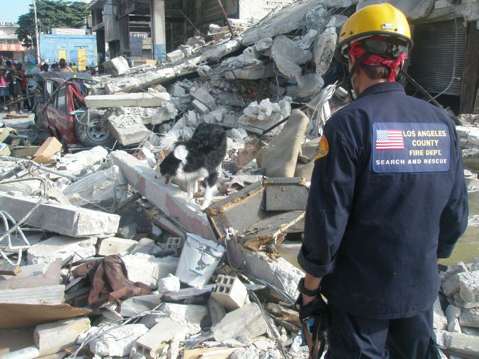
Some of the victims the teams encountered had been trapped for up to 10 days. The floors were pancaked and sometimes, said Weckbacher, there was only 18 inches from one floor to the next. Nevertheless, these heroic dogs were able to slide into the rubble gaps and save lives.
“I could not be more proud of them,” said Debra Tosch, executive director of the Search Dog Foundation. “They went over there in very adverse situations and were able to make a difference.”
While the SDF teams made a significant impact, there was a range of emotional responses they encountered. Weckbacher described how fulfilling it was to save a 50-year-old woman who came singing out of the rubble, but he also spoke about how devastating it was to have to tell a mother that the search dogs could not detect life in the collapsed building under which her eight children lay. While they were not always able to bring good news to hopeful family members, Weckbacher explained, they were able at times to at least provide closure for those who were uncertain of their loved ones’ fates.
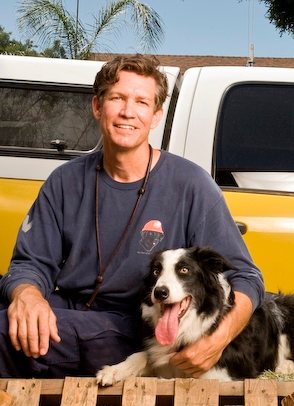
In addition to performing the actual rescues, the Search Dog Foundation was able to use the Haiti calamity to improve rescue techniques for future disaster situations. “Whenever something like this happens there are always lessons learned,” said Tosch.
The Search Dog Foundation is currently in the process of constructing a new national training center. The Haiti disaster reportedly opened foundation members’ eyes to specific needs of responding teams, and feedback from the Haiti effort is helping in the center’s construction plans. The foundation plans to simulate the small, 18-inch rubble gaps they encountered in Haiti among the other obstacles they dealt with.
The selection and training of these dogs is truly astonishing and requires extraordinary abilities. Typically, the Search Dog Foundation uses golden retrievers, collies, and labs that are put into shelters by their owners.
“We are sparing these dogs from death row,” said SDF’s Canine Manager Karen Klingberg. “It is thrilling to know what their capabilities are, and to think about the lives they may save later on.”
It is at these dog shelters that SDF “recruiters” find the candidates they are looking for. These dogs are often rambunctious; they get bored easily when they don’t have something to do and therefore can become destructive. While this is hazardous for being a domestic dog, the personality type is a perfect fit for becoming a search dog.
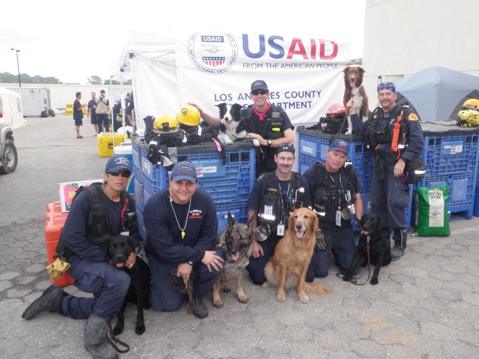
Instead of eating couches or digging up gardens, these dogs are trained to be toy-driven. They start their training with an obsession over a toy, and then eventually learn to figuratively attach a human with the toy. The foundation channels this desire to find the toy into finding people the dogs cannot see, making a game out of it, which they never get tired of playing.
After eight months in a vigorous training center and one year with a partnered firefighter who they must be with 24/7, the selected dogs are then tested to become FEMA certified, which is a difficult endeavor. Out of every 100 dogs tested, about 10 of them make the final FEMA certification and actually become official rescue dogs.
Although the training is very rigorous, it proved to be worthwhile. “When something like that happens, it just shows the importance of their training,” said Tosch. It is this professional training and dedication that has prepared the local charity, made possible by local funding, to service the nation and world.
The SDF’s operation in Haiti was, according to Klingberg, “The deployment of a lifetime.”

